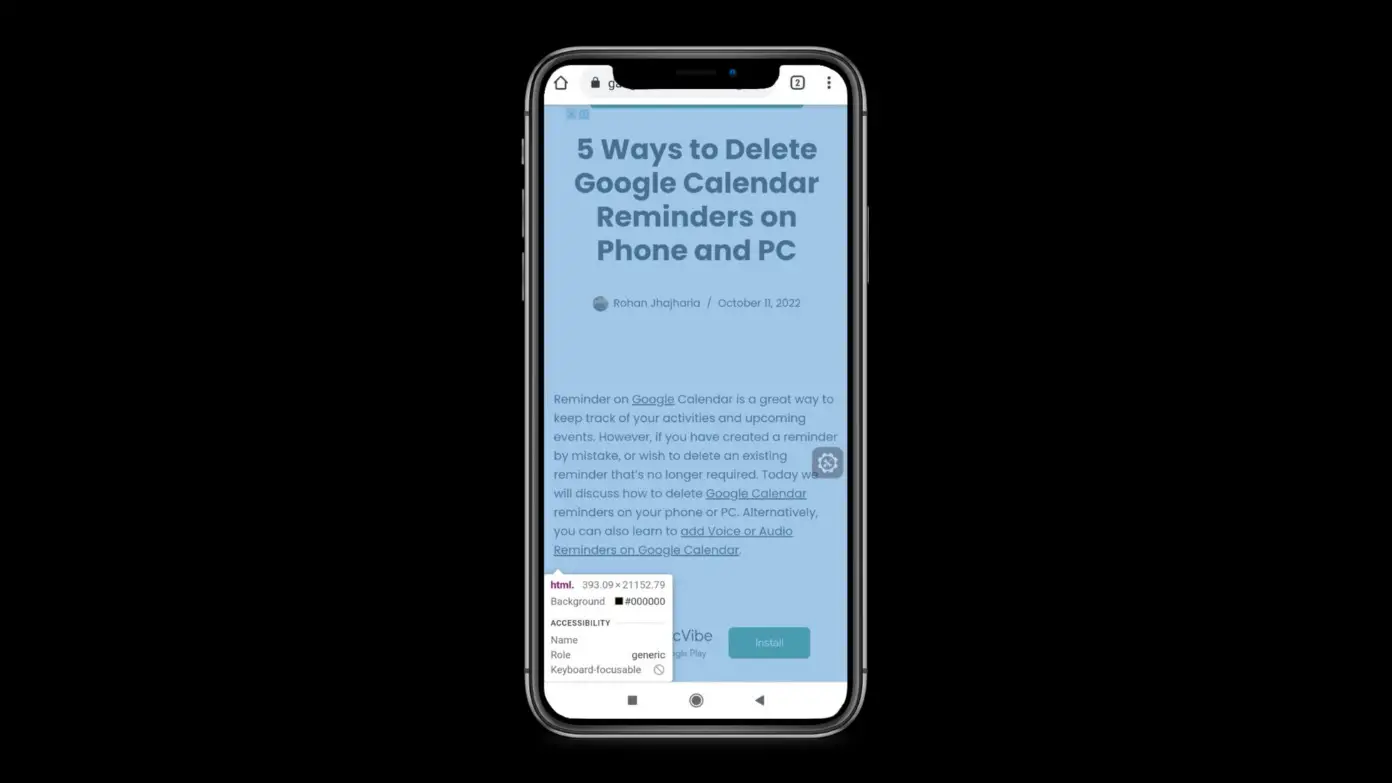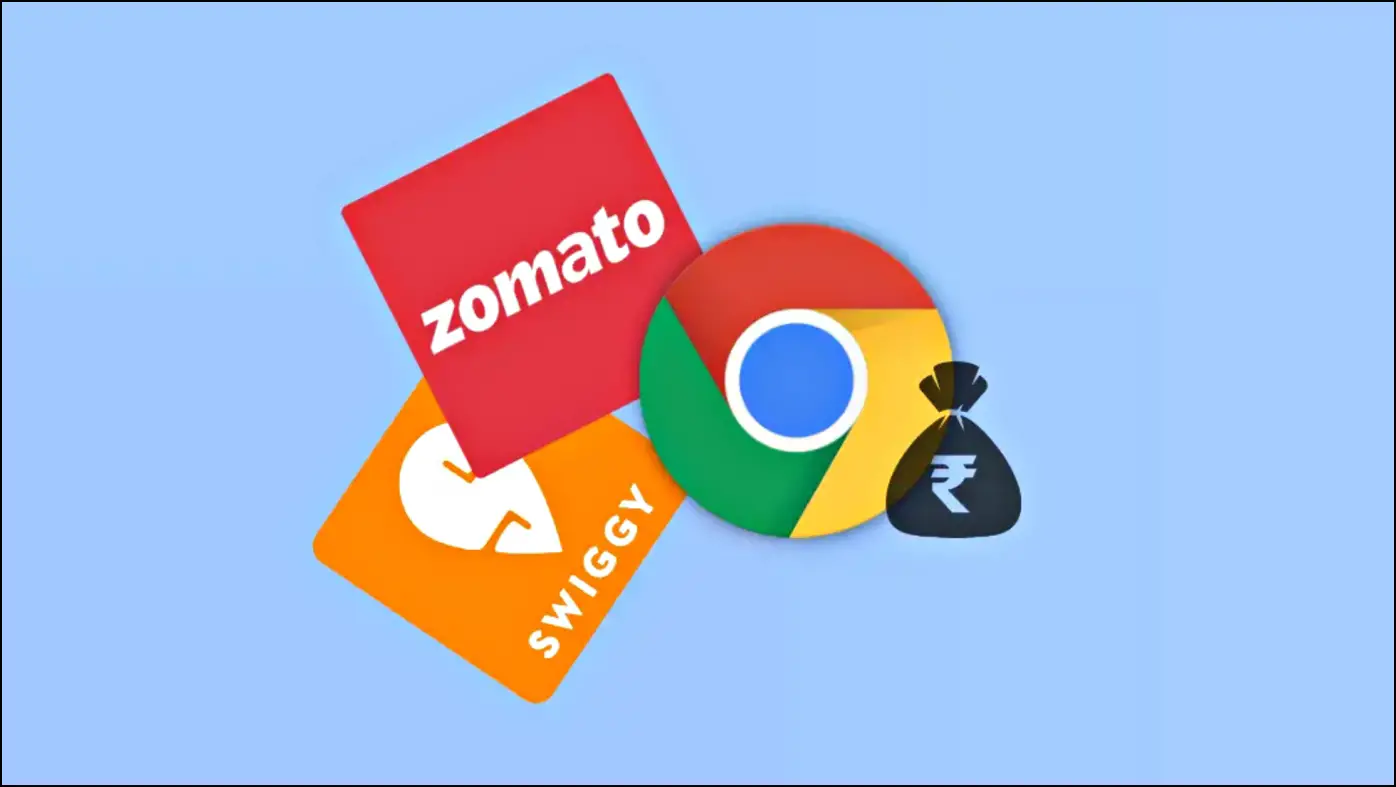If you are a 90s kid, you must have fond memories of using the Firefox browser. It was known for its responsive interface and privacy features which led to some regarding it as the best Chrome alternative. But lately, the popularity of Firefox has died down, and dedicated fans are curious about its future. So in this article, we will discuss the current state of Firefox, the reason for its downfall, and why the browser’s survival is important for the industry.
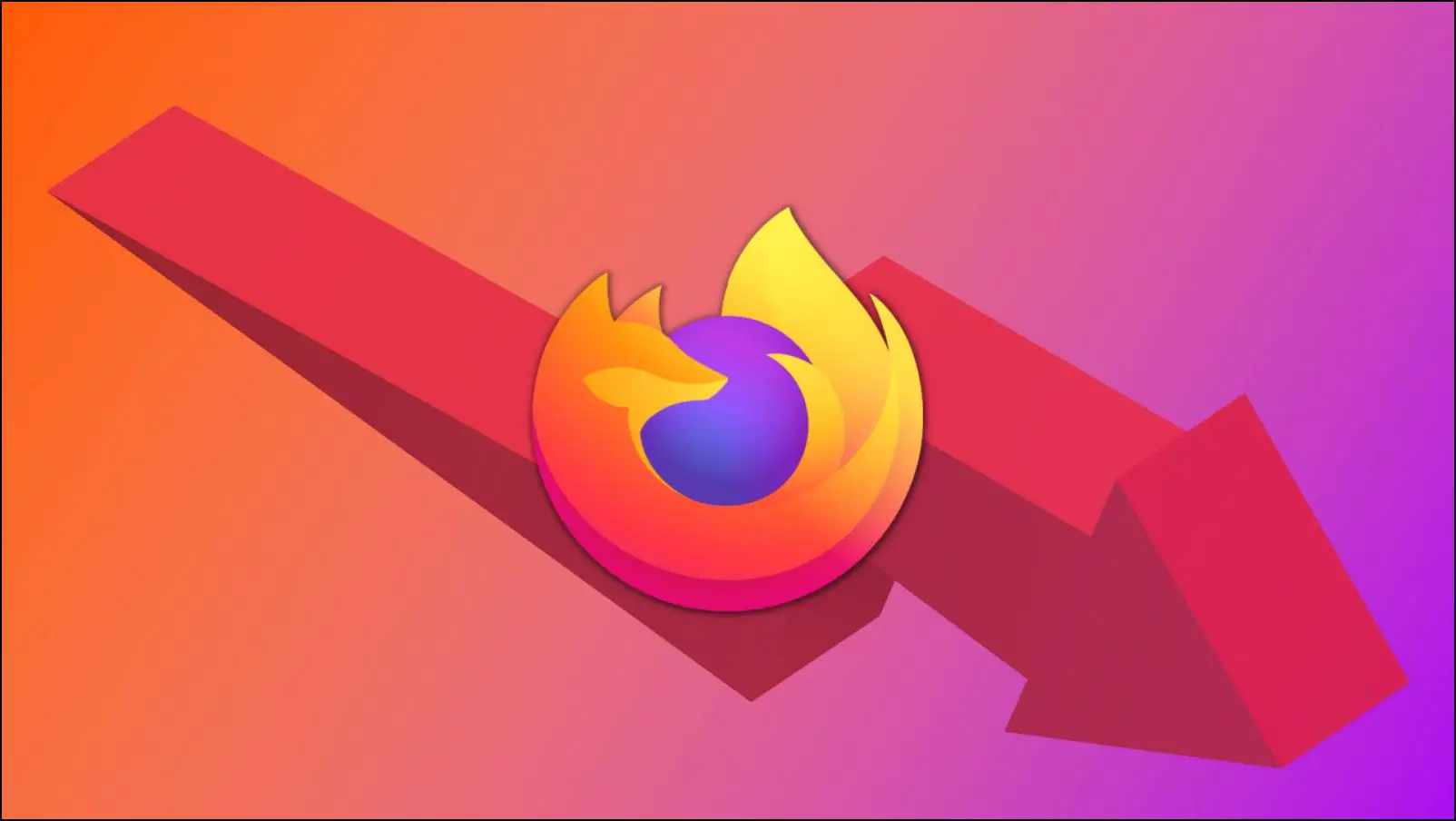
Is Firefox Actually Dying?
No. Not even close to that since, as of April 2022, the browser was reported to have over 362 million users. But several outlets have been showing concern for the browser as its market share currently resides at 3% and has been declining for a few years.
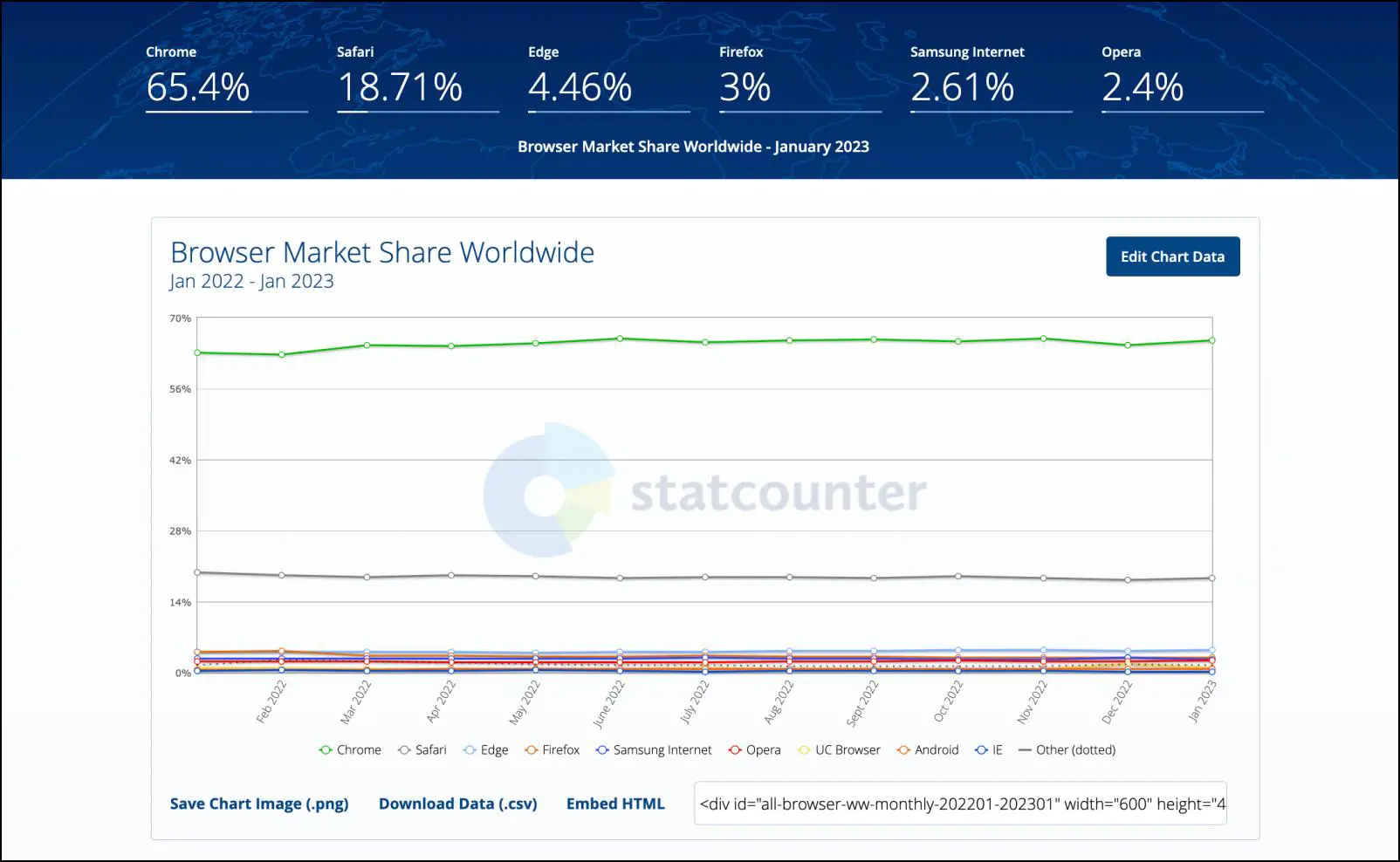
Chart Provided By StatCounter
To back that up, Mozilla, the company which makes Firefox went through two rounds of layoffs back in 2020. Mozilla also makes most of its revenue with its deal with Google which is set to expire this year, and the fall in market share, layoffs, and drop in monthly active userbase might be enough reasons for Google to renew its deal.
What are the Reasons for Firefox’s Decline?
With all that said, the important thing is to understand why Firefox fell in the past decade and a half, what were its shortcomings, and how it failed to anticipate today’s environment. Looking into the matter, we found a few key reasons why Firefox has declined.
Mozilla never managed to create an ecosystem for Firefox (besides the failed Firefox OS), which was important in this era of smartphones.
Back in the day, Firefox used to introduce new features, but these days, it just tries to play catch up with Chrome’s pre-existing features
Dominance Of Google Chrome

Currently, Chrome dominates the browser industry with more than 64% market share. The reason behind its success was its approachable design and optimizations by Google to speed up search results and cache pages for faster loading in time when internet speed was quite low.
Google has continued to improve Chrome along with its search engine. This resulted in most websites following Google’s policies and making changes based on them. This led to users facing issues with certain websites on Firefox while they ran fine on Chrome.
The Emergence of Competing Browser
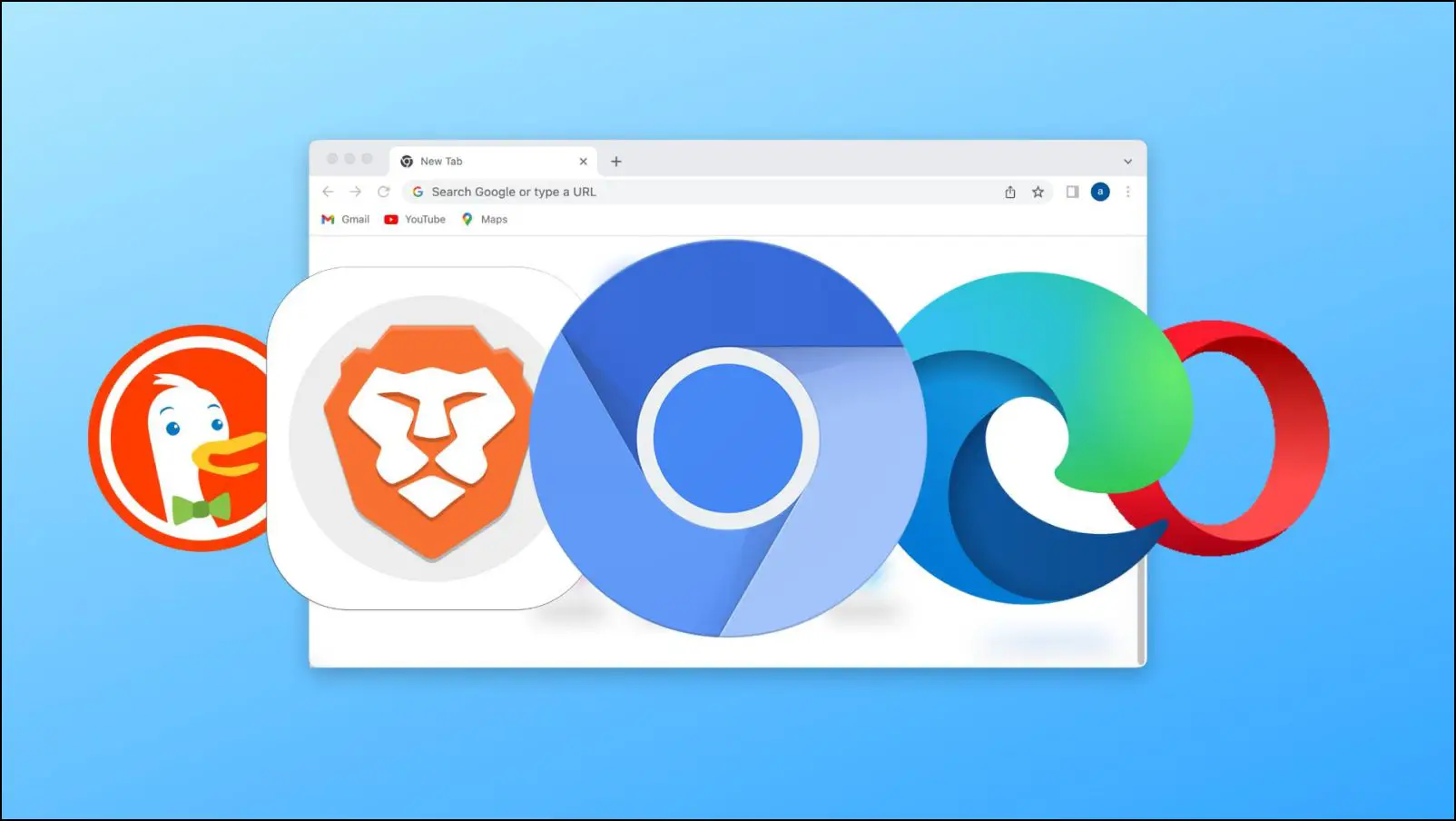
Firefox thrived in the late 2000s as its only competition was Chrome, but that isn’t the case anymore. A cluster of Chromium-based browsers has appeared on the scene, pleasing to every niche audience. Even though Chrome dominates the market, browsers like Safari and Microsoft Edge are still gaining popularity among users.
You can even find a bunch of new privacy-focused browsers like Brave, Vivaldi, DuckDuckGo, and Opera. And some have stepped up by joining hands with Tor which is considered the best option to protect against trackers. All this led to several Firefox users opting to go with these browsers.
Lack of an Ecosystem
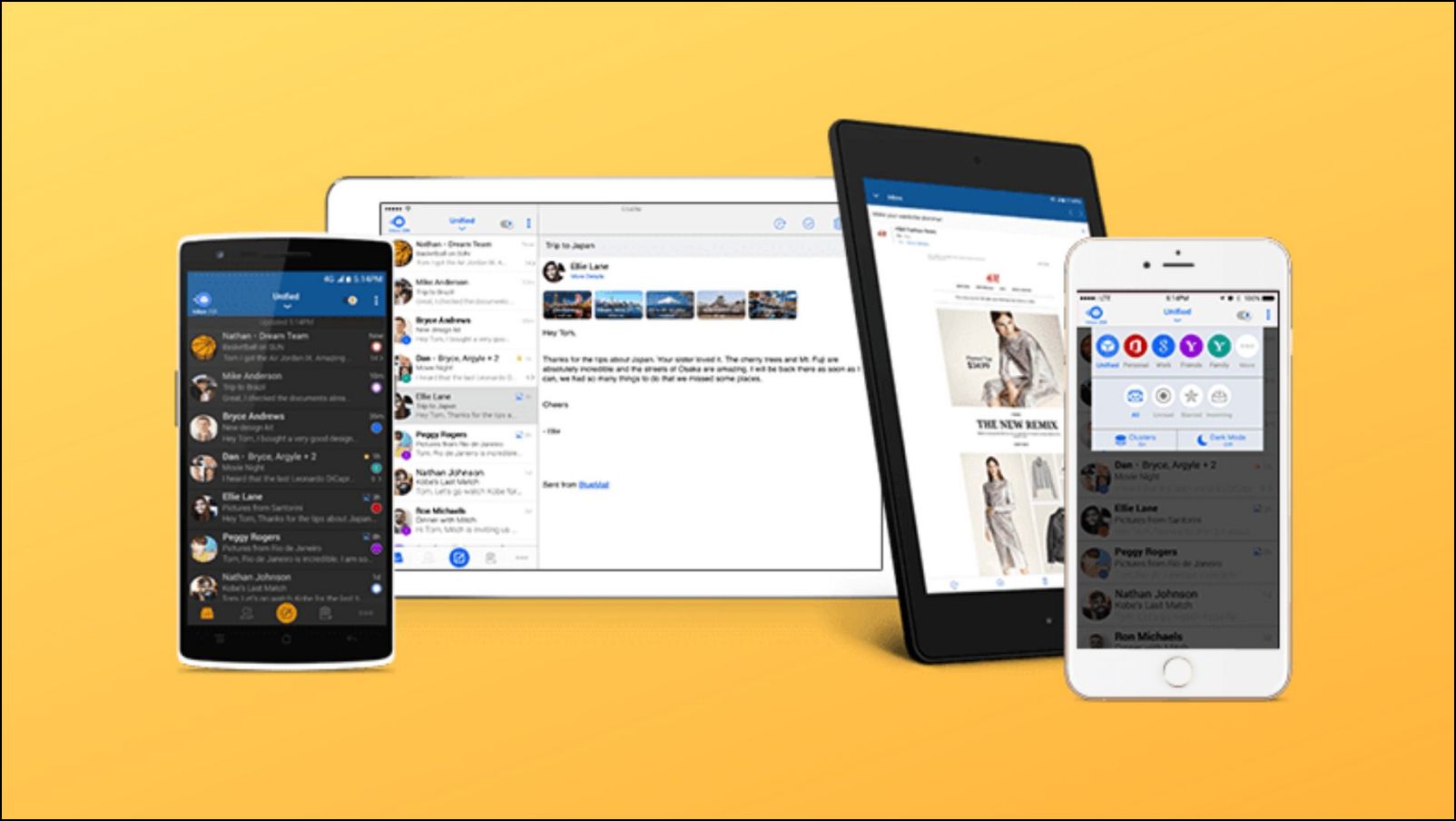
Mozilla never managed to create an ecosystem for Firefox (besides the failed Firefox OS), which was important in this era of smartphones. Browsers like Chrome and Safari are integral parts of their respective ecosystem. Google ships every Android smartphone with Chrome and the same with Safari on Apple devices.
And since both browsers perform well, receive regular updates, and not to forget the additional benefits of cross-device syncing, users don’t feel the need to shift to a third-party browser. Even Samsung Internet (the default browser for Samsung devices) has a bigger user base on mobile than Firefox.
Issues and Controversial Changes
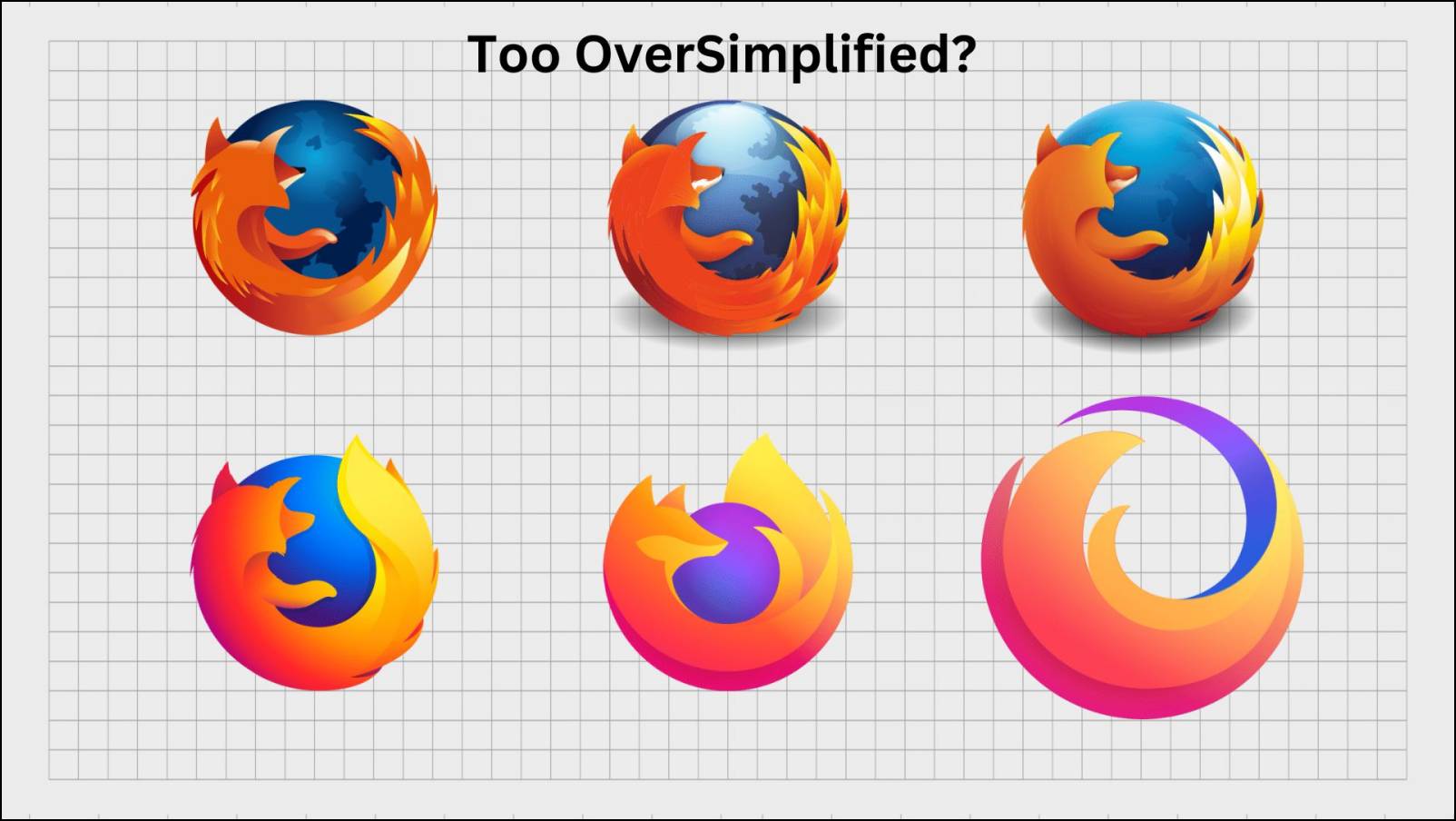
Back in the day, Firefox used to introduce new features, but these days, it just tries to play catch up with Chrome’s preexisting features. Moreover, community favorite features like the custom density option and tab bar organization were also changed. Not to forget the oversimplified logo that was heavily meme-d upon.
But users have also been facing issues with websites that are not visible in Chrome, thanks to the changes made by Google that we discussed above. This has led to users opting to go with Chrome or a Chromium-based option with no real incentive to return to Firefox.
What is the Current State of Firefox?
Mozilla did well in 2022, generating $585 million in revenue, an improvement of 25% from the previous year. Its homegrown services also result in profit, yet it still has a long way to go. Firefox is still struggling, and even the people working at Mozilla have little faith in its future. But there are ways it’s trying to overcome these issues, and we have listed them down for you.
Partnerships and Deals with Google

As mentioned before, Mozilla has an ongoing deal with its biggest competitor Google to keep its search engine as the default option in Firefox, and in return, Google pays a hefty sum of money. The same is the case with Yandex in other regions.
Firefox also had a partnership with Disney for its upcoming Pixar movie, where it changed the theme of the browser and allowed users a chance to win a Disney+ subscription. All these partnerships and deals play a major role in Mozilla’s revenue.
Ads and Sponsored Content
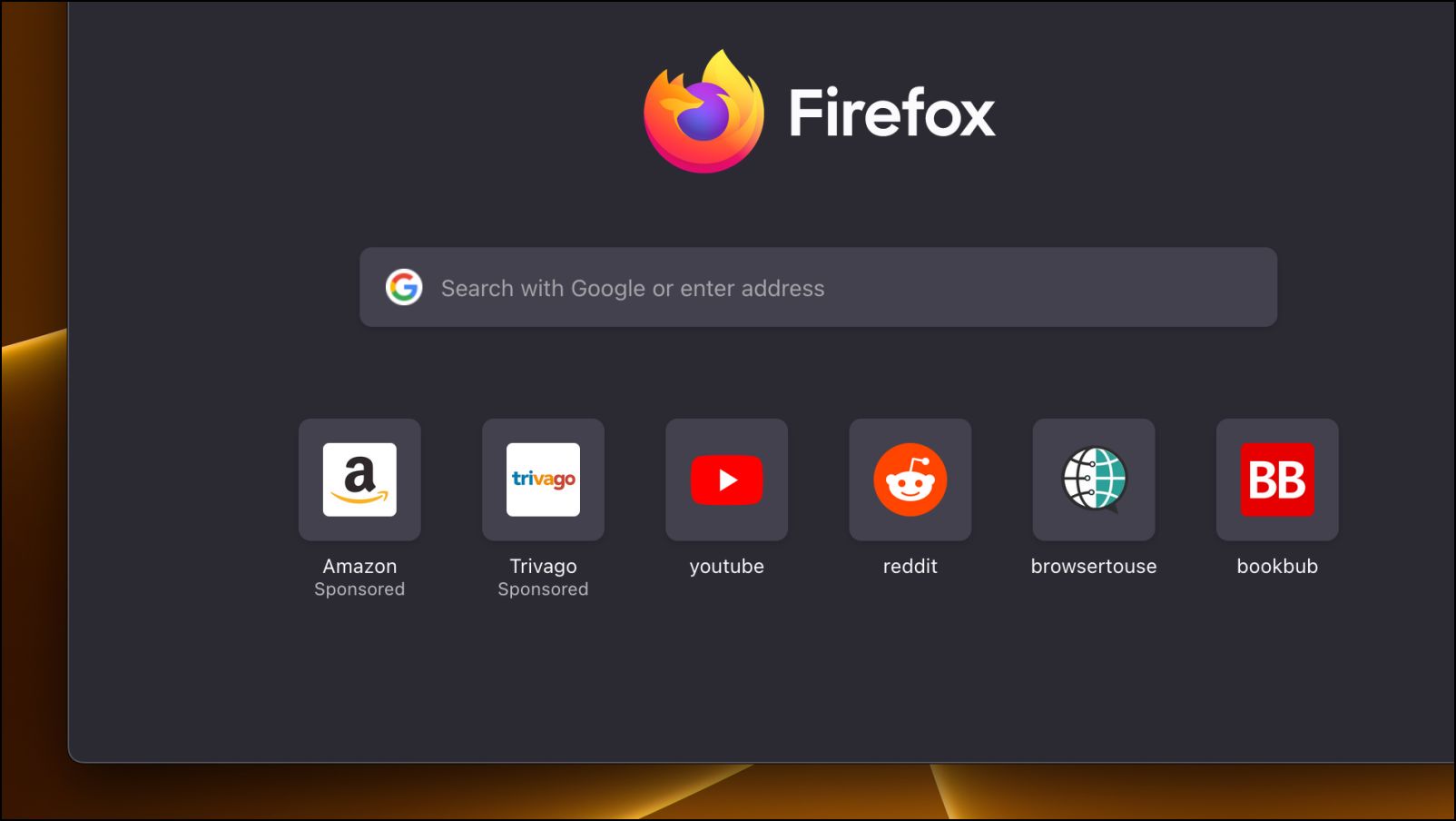
Firefox has also recently started showing ads on new tab pages to boost its revenue. This along with sponsored suggestions in the address bar and sponsored shortcuts on the new home page, were also added. You do get the option to disable it.
It might seem weird for a privacy-centric browser to show sponsored content, but it isn’t anything new. Take Brave browser, for example, which shows and promotes several crypto-related services with its Brave background and Brave News options.
Introduction of Paid Services
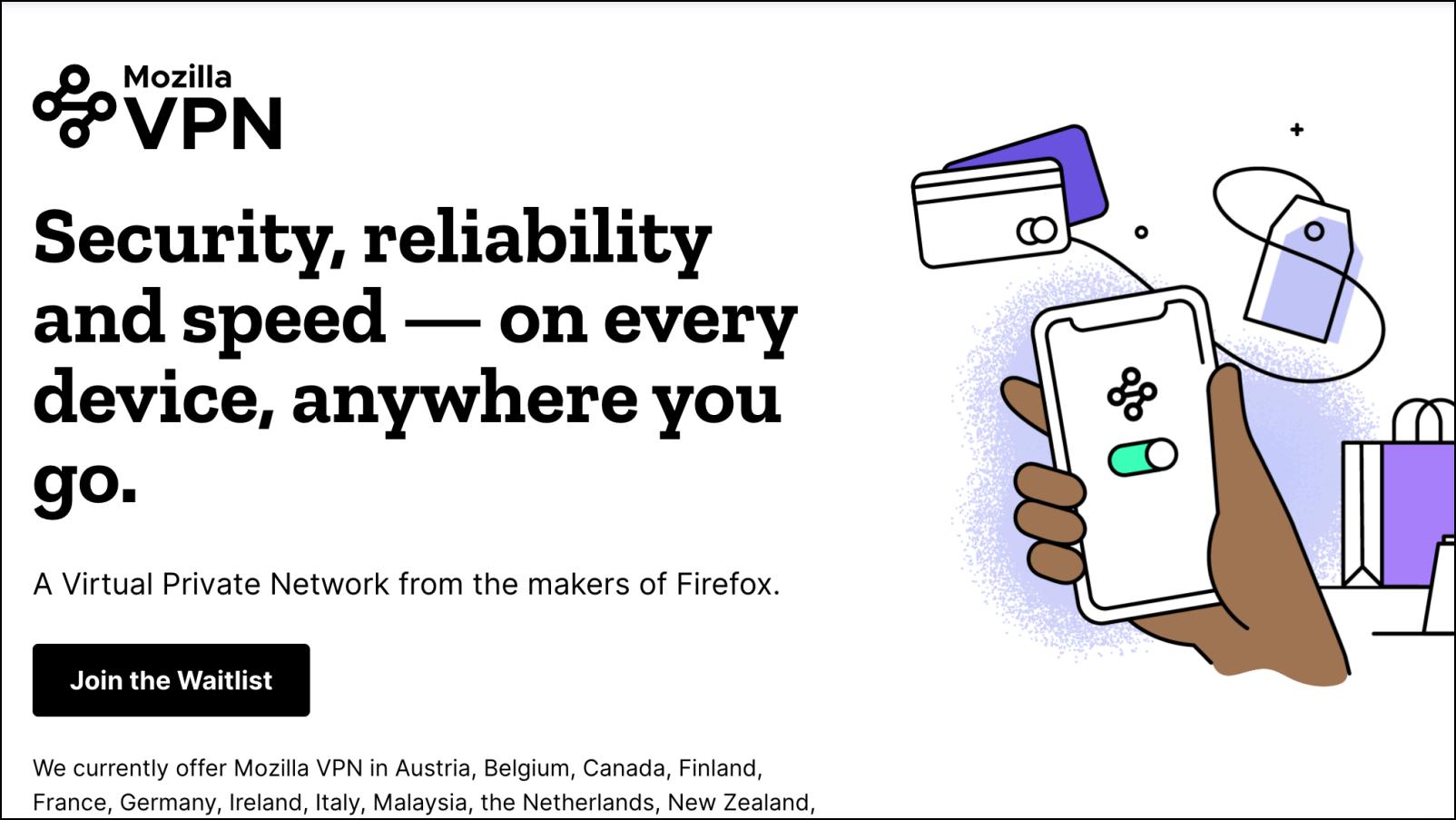
Mozilla is trying to introduce other services to work with Firefox in an attempt to diversify its revenue streams. It released two VPN proxy-style services that users can pay for along with the read-it-later Pocket service that comes with the browser.
The VPN service has proved to be somewhat successful, and Mozilla is planning to release a suite of security-based products later down the line. These products should work with Firefox as well as standalone services.
Why is Firefox Important for the Web?
I have been pretty harsh about Firefox up until this point, but it is also necessary to say that Firefox is an important web browser now more than ever before. And its struggling nature should be a concern to everyone. To help understand more about Firefox’s importance, I have listed some key points.
Started the Privacy and Security Revolution
Revolution might be a strong word, but yes, Firefox was among the first web browsers that focused on users’ privacy. For those unaware, Firefox was also the first browser to become open-sourced when the concept was unheard of. So it wouldn’t be wrong to say that the browser played a key role in shaping the privacy and security standards of the internet.
Prevent Google’s Monopoly of Web Standards
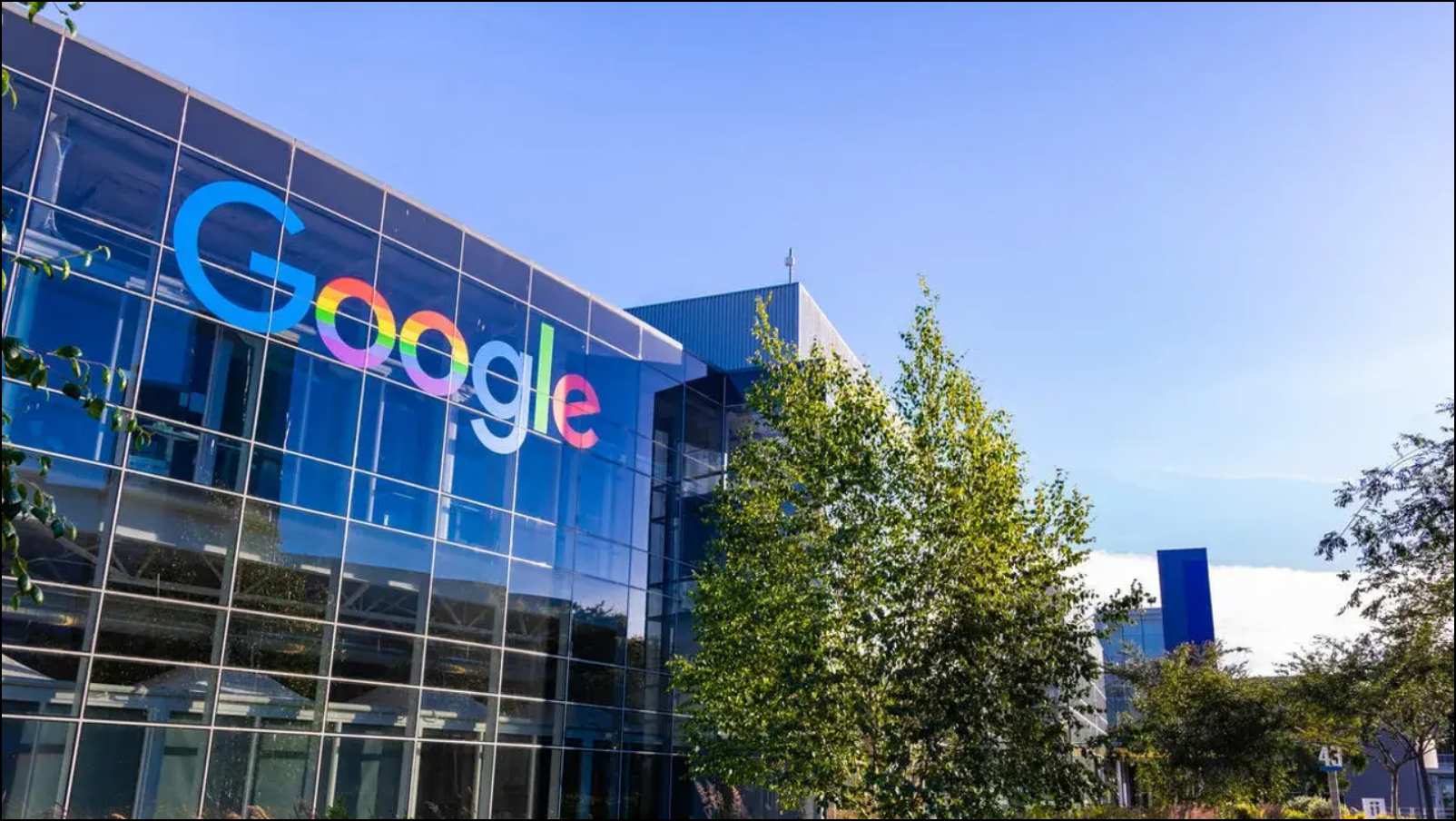
As more users shift to Chrome or a Chromium-based alternative, websites will be inclined to follow Google’s changes to web policies and standards which does not bode well for an open internet. Google earns most of its revenues from ads in return for user data, so how much privacy can one expect when it has a monopoly on the web?
Apple is also ramping up its ads business which might likely make its way to Safari soon. This leaves Firefox as the only alternative browser option. Even Internet Explorer passed down its lineage to the Chromium-based Microsoft Edge.
What the Future Holds for Firefox (Wrapping Up)
We might see some new additions to Firefox in their attempt to improve the browser and add more services later this year. Though these new plans might not sound passing to those who prefer absolute privacy, in times like these, we should be supportive of their decisions instead of being critical.
I would like to end this article with a few words from the Ex-Senior Vice president of Firefox, Salena Deckelmann, “Firefox doesn’t need to be as big as Chrome or Apple’s Safari, the second largest browser, to succeed. All we want is to be a viable choice. Because we think that this makes a better Internet for everybody to have these different options.”
Related:
